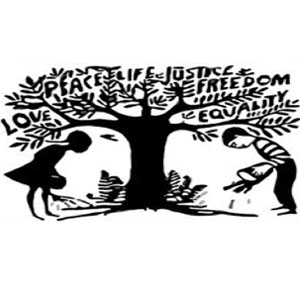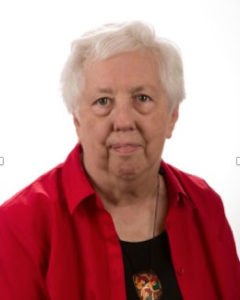
A Biblical Understanding of Justice
Justice has been basic to the teachings of the Hebrew and Christian faiths. The prophets challenged the Israelites time and again to do justice. Amos even went so far as to speak out against the religious rituals and customs of the day, saying they were worthless because they did not lead the people to acts of justice. Jeremiah reminded King Shallum that the only way to know God was to care for the poor and needy with justice and righteousness.
Jesus also challenged his followers to care for the poor and needy; to seek peace; and to have a world in which all persons could live in dignity. Not only did Jesus challenge, but he also said we would be judged by our acts of justice individually and as nations.
The justice of the Bible is much more than the justice prescribed by a legal or court system. Biblical justice takes into account God’s sense of fairness, mercy and love. God is on the side of the poor and oppressed; God looks at the needs of people; God helps those who suffer; and God want dignity for all people.
Jesus is our example and we are called to be a just people working actively to liberate the oppressed. God’s justice is difficult for those of us with privilege in society or the church. At the same time, God’s justice is a sign of hope for those who are without privilege. Numerous issues are raised as issues of justice, and we as Christians must discern those that are really part of God’s vision of justice.
In the 65thchapter of Isaiah are found powerful images of what God would like the world to be. The prophet speaks of a world where people are healthy; where everyone has shelter and food; where work is respected; a world without war and violence; and a world in which all people live in harmony with each other and with God’s creation. This is God’s vision and it is our responsibility to assist in fulfilling that vision.
Applying this vision to our society, perhaps we could translate the words of Isaiah into a domestic agenda that we all need to work at bringing about. Included in that agenda would be:
- A health care program that insures adequate health care for all
- A viable program for obtaining housing for the homeless and food for the hungry
- A reordering of the national budget away from armaments, military, border walls to good education for every child and a living wage for all
- The development of a truly multicultural society in which racial, sexual and ethnic differences are appreciated and affirmed
- A strong commitment to protecting the environment for future generations.
I strongly believe that each of us must be willing to address these issues and work with others to bring about the necessary within systems of our society that defer God’s vision. Witness to God’s vision and God’s love for every person. Share that love and you too will be a participant in God’s work of justice.
Joyce D. Sohl, Laywoman-in-Residence
 Joyce D. Sohl has been Laywoman-in-Residence since 2009 as a full-time volunteer. She retired as CEO of United Methodist Women in 2004. She is the author of 4 books, a teacher, retreat leader, writer and non-professional musician. Here at the Center her work is in the area of Spirituality & the Arts with such programs as Tuesdays in the Chapel, Vespers & All That Jazz, Poet’s Corner, quarterly retreats, and art exhibits.
Joyce D. Sohl has been Laywoman-in-Residence since 2009 as a full-time volunteer. She retired as CEO of United Methodist Women in 2004. She is the author of 4 books, a teacher, retreat leader, writer and non-professional musician. Here at the Center her work is in the area of Spirituality & the Arts with such programs as Tuesdays in the Chapel, Vespers & All That Jazz, Poet’s Corner, quarterly retreats, and art exhibits.
